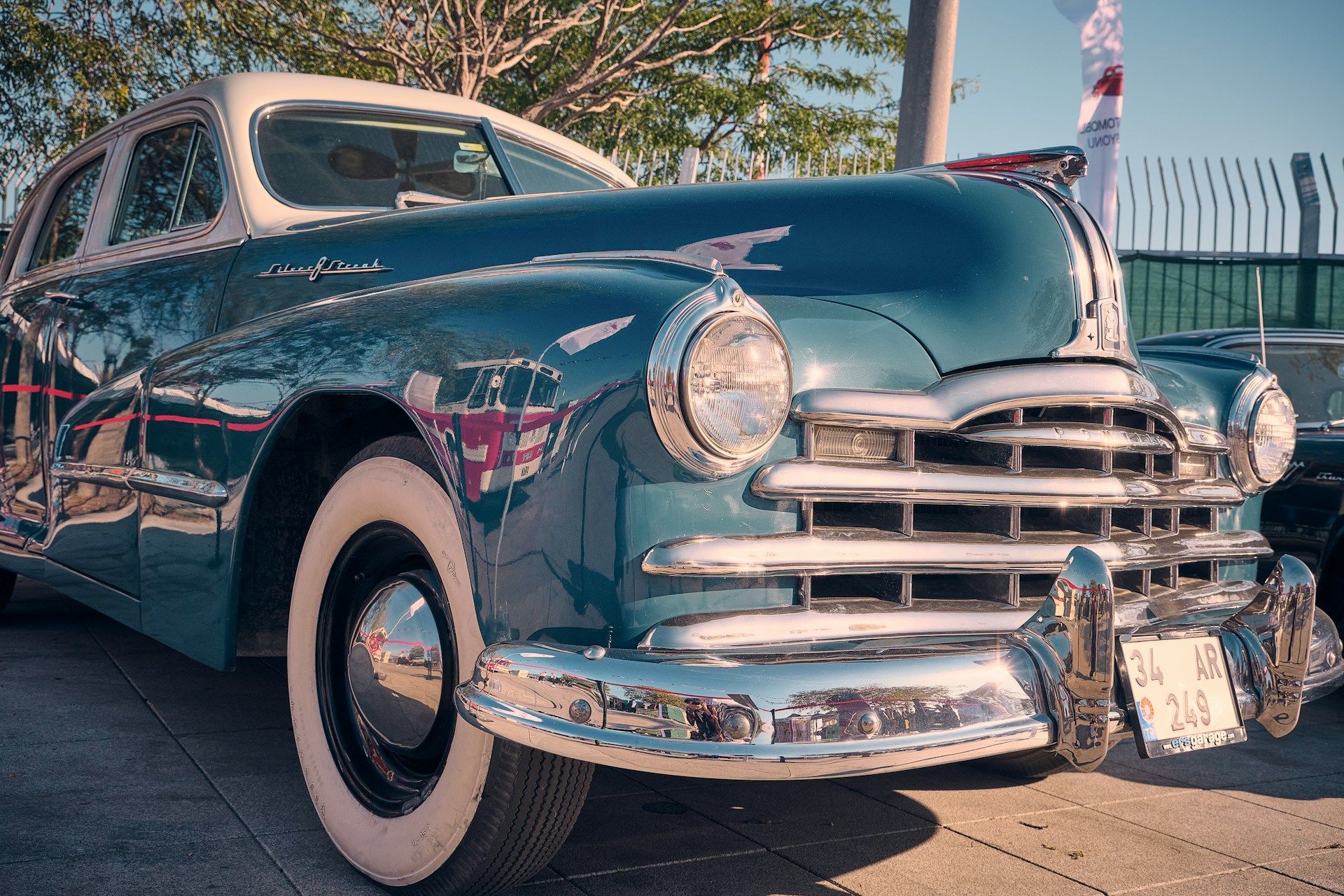business resources
Why Classic Cars Are Making a Comeback in the Modern Era
20 Nov 2024, 11:00 am GMT
Classic cars hold a unique place in automotive culture, serving as a reminder of the artistry and engineering of yesteryears. As the world shifts towards electric vehicles and cutting-edge technology, there's been a noticeable resurgence in the popularity of these vintage beauties.
Enthusiasts, collectors, and casual fans alike are celebrating the intricate craftsmanship and distinctive designs that classic cars offer. But what drives this fascination with vehicles that have long since left the production line? Let’s explore the key reasons behind the revival of classic automobiles and their growing appeal in the modern area.
The Appeal of Nostalgia
Many people reminisce about their childhood or the joy of driving in their parents' or grandparents' vehicles. This sense of nostalgia extends beyond mere memories; they evoke a feeling of a simpler time and a connection to personal histories. Such emotional ties to the past drive collectors to restore and maintain vehicles shared within families as cherished heirlooms.
With their unique designs and vibrant colors, the aesthetic of classic cars holds a charm that many modern vehicles lack. This leads to a stronger sense of pride among owners who wish to showcase their vintage rides at car shows and local gatherings. You can find many classic automobiles online and live your dream of owning rare models that enhance status within a community. As fewer original models are available, their rarity starts driving prices up.
The Rise of the Classic Car Restoration Culture
Alongside nostalgia, the culture of classic car restoration has witnessed significant growth in recent years. Many individuals take on restoration projects as hobbies, spending countless hours in their garages, learning from online forums, and participating in local car clubs. Restoration brings a sense of fulfillment and creativity and teaches valuable skills in mechanics, painting, and upholstery work.
Social media platforms have become a vibrant space for restoration enthusiasts to share their progress, garner support, and even gain inspiration from others' projects. As a result, this culture fosters a sense of community, whereby people come together to celebrate their passion for classic cars. The excitement surrounding these restoration projects drives further interest, deepening the connection enthusiasts have with classic vehicles.
Environmental Considerations and Sustainable Practices
While new cars require extensive resources to manufacture, restoring and maintaining existing classic automobiles can be seen as a sustainable practice. Most enthusiasts emphasize the importance of repurposing and recycling parts and restoring cars instead of purchasing new models, which contributes to reduced carbon footprints.
The increasing interest in green alternatives has led some enthusiasts to adopt hybrid or electric technologies within classic designs. Classic automobiles are being enhanced with modern, eco-friendly vehicle technologies that provide higher fuel efficiency while retaining the vintage charm. This integration fosters a unique marriage of nostalgia and innovation, attracting those who appreciate both classic and modern ideals.
The Investment Value of Classic Cars
The appeal of vintage automobiles as an asset class has gained traction due to their potential for appreciating value over time. The classic car market has shown resilience, maintaining a steady elevation in value even amidst economic downturns. Enthusiasts find pleasure in owning vehicles that not only symbolize their personal interests but possess investment potential. However, you must conduct thorough research and market analysis before entering into this market. Investing in classic cars requires understanding market trends, restoration costs, and the overall appeal of specific models. With the right approach, classic cars can serve as both a passion project and a lucrative investment opportunity.
Community and Events Celebrating Classic Cars
Car shows, swap meets, and rallies provide opportunities for enthusiasts to connect and share their love for vintage vehicles. These events allow attendees to showcase their restored cars, exchange tips, and share stories about their automotive adventures. Many communities now host annual car shows, drawing considerable crowds, and showing that classic cars are more than just personal possessions—they symbolize shared interests and camaraderie.
Local businesses may benefit from these gatherings, with spectators dining out, purchasing merchandise, and supporting local shops. This thriving ecosystem enhances the excitement among classic car lovers and elevates the overall experience. These events become centers for sharing knowledge and consolidating their cultural significance.
The Role of Social Media in Classic Car Culture
Users can create profiles highlighting their vintage collections, engage with other car lovers, and even follow trends in the classic car community. Through the extensive sharing of photos, videos, and restoration stories, social media fosters a global conversation surrounding these timeless vehicles. Notably, many influencers and automotive enthusiasts have dedicated platforms to review and discuss classic cars, further enticing interest among different demographics.
Social media challenges also increase engagement, adding a competitive element to the culture. Instagram and YouTube have transformed the way enthusiasts share their passion, providing a space for tutorials and in-depth showcases of iconic vehicles. Within this environment, discussions can easily lead to meeting like-minded individuals and forming long-lasting friendships.

Classic cars have undeniably carved a place for themselves in the contemporary automotive landscape. Their charm, coupled with the rich historical narrative they carry, captivates audiences globally. As the passion for classic automobiles flourishes, they signify a love for vintage design and evoke memories and experiences that resonate across generations. This combination of nostalgia, community, and investment potential ensures that classic cars remain an integral part of the automotive culture.
Share this
Arthur Brown
Writer
A dad of 3 kids and a keen writer covering a range of topics such as Internet marketing, SEO and more! When not writing, he's found behind a drum kit.
previous
What You Need to Know Before You Set Up a Limited Company
next
8 Advantages of Coworking Space for Expanding Your Startup Team